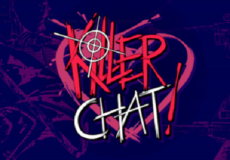

Dispatch
Advertisement
Dispatch is a narrative-driven game that focuses on the tension and responsibility of handling emergency calls. The player takes on the role of a dispatcher working at a control center, where every decision can influence the outcome of critical situations. The game blends real-time dialogue, moral dilemmas, and branching choices to create an atmosphere where listening carefully and responding wisely are essential. By stripping away action-based gameplay and focusing on communication, Dispatch offers a unique approach to interactive storytelling.
Advertisement
Similiar games
Dispatch is a narrative-driven game that focuses on the tension and responsibility of handling emergency calls. The player takes on the role of a dispatcher working at a control center, where every decision can influence the outcome of critical situations. The game blends real-time dialogue, moral dilemmas, and branching choices to create an atmosphere where listening carefully and responding wisely are essential. By stripping away action-based gameplay and focusing on communication, Dispatch offers a unique approach to interactive storytelling.
Core Gameplay And Mechanics
The main mechanics in Dispatch revolve around receiving calls, analyzing information, and deciding how to respond. Players interact through dialogue options that can escalate or defuse situations depending on tone and timing. Each call presents limited information, requiring players to make assumptions and take risks. The challenge lies not in reflexes but in judgment, as the right choice can save lives, while the wrong one may lead to failure. The emphasis on player responsibility creates an intense experience where every second matters.
Features That Define The Experience
Several aspects distinguish Dispatch from other narrative games:
· Real-time decision-making under pressure
· Branching dialogues that lead to multiple outcomes
· A focus on audio cues and subtle details in speech
· Storylines that address personal, ethical, and social themes
· Replayability through discovering alternative responses
These features combine to give players a sense of urgency and control, while also encouraging multiple playthroughs to explore different outcomes.
Storytelling And Emotional Depth
Dispatch places heavy emphasis on the human side of emergency response. Characters on the other end of the line are more than just voices; they have fears, motivations, and personal stakes. The dispatcher’s role forces players to empathize while still thinking logically. This balance between empathy and duty forms the emotional core of the game. The writing explores life-or-death scenarios and the psychological toll of working in such a high-stress environment, giving the narrative both weight and realism.
Replayability And Community Engagement
One of the strengths of Dispatch is its replay value. Because each call can be handled in different ways, players often return to see how alternative decisions affect the story. The community plays an active role by sharing interpretations, discussing strategies, and debating moral choices presented in the game. This social layer adds to the overall experience, showing how a game based primarily on dialogue can generate strong engagement. Dispatch demonstrates how focused storytelling, combined with simple but meaningful mechanics, can deliver a powerful interactive experience.
Discuss Dispatch




















